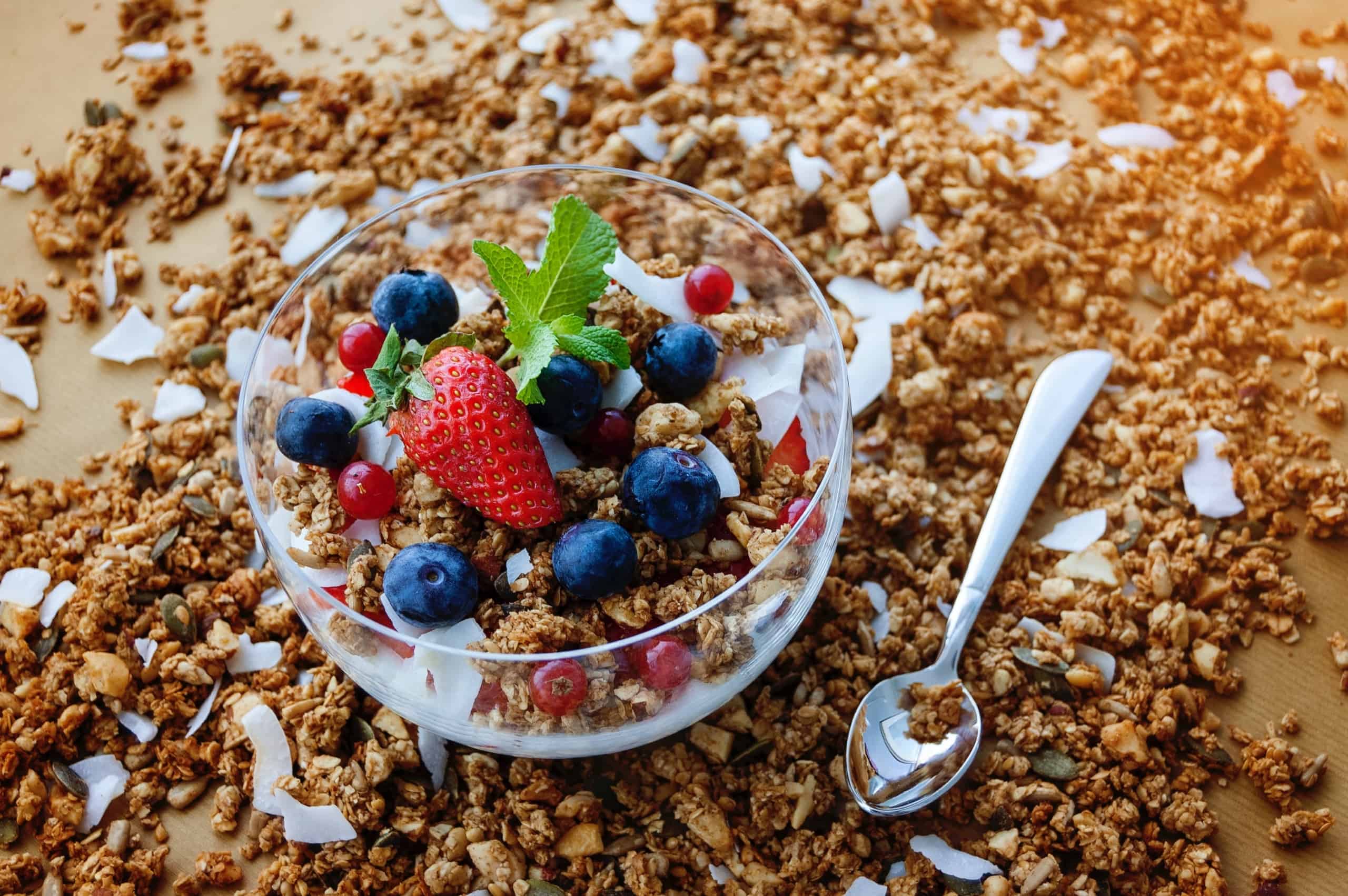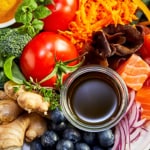Your gut microbiome plays a major role in your overall health. What is a microbiome? It’s a community of microorganisms and their genes living in an environment. Plants, animals, soils, and oceans also have their own microbiomes. The largest microbial population in the human body is located in your colon or gut. It’s important to note: the majority of microbes that live in and on the human body belong there and help maintain your physical and mental health.
The microbiome consists of trillions of microorganisms of various species including bacteria, viruses, fungi, and other life forms. Your gut microbiome consists primarily of beneficial symbiotic bacteria and a small amount of pathogenic or disease-promoting bacteria. Keeping a healthy balance of good bacteria within your gut helps to decrease your risk of heart disease, cancer, diabetes, obesity, anxiety, depression, and autoimmune diseases.
Nourish your Gut Microbiome
What you choose to eat determines the amount of good vs. bad bacteria that are taking up residence in your gut. Eating foods containing prebiotics and probiotics provides a favorable environment for a healthy microbiome. Prebiotics act as fertilizers for good bacteria to flourish within the gut. Prebiotics are complex carbohydrates in the form of indigestible plant fiber. This dietary fiber can only be broken down and fermented by the good bacteria in your colon. As a result of the fermentation process, short-chain fatty acids (SCFA) are released.
SCFA support lower pH levels limiting the number of bad bacteria that are present in your microbiome. SCFA present in the colon may support a healthy immune system and help stabilize blood glucose and cholesterol levels. You may see prebiotics listed as inulin, fructooligosaccharides (FOS), galactooligosaccharides (GOS), cellulose, or fructans. There are many fruits, vegetables, and whole grains that contain prebiotics like apples, asparagus, bananas, barley, beans, garlic, onions, and wheat bran. You can also get prebiotics through supplements. Although there’s no recommendation for prebiotics, incorporating adequate amounts of fruits, vegetables, and whole grains into your daily meal plan will ensure you’re eating enough.
What are Probiotics?
Probiotics are found in foods that naturally contain bacteria. They are also found in supplements that contain live-active bacteria. These live organisms are referred to as the good bacteria in your gut. They are dependent on prebiotics as their main food source. Lactobacillus and Bifidobacterium are the most well-known types of probiotics. Yogurt is a common probiotic food. Other fermented probiotic-containing foods include aged cheeses, kefir, kimchi, sauerkraut, miso, pickled vegetables, and tempeh.
If you’re experiencing symptoms like bloating, diarrhea, food cravings, skin issues, weight fluctuations, headaches, or the inability to focus, you may want to take a closer look at your daily eating plan. Foods that may promote an unfavorable environment in your gut include alcohol, artificial sweeteners, processed foods, and added sugars. These foods are known to cause an inflammatory response within your gut, thus altering the balance between good and bad bacteria. Although more studies are needed, current research shows that inflammatory foods can decrease the good bacteria and increase the bad bacteria in your microbiome.
Keep Life in Balance
Along with consuming a healthy balance of nutrient-dense and fiber-rich foods, it’s important to keep other aspects of your lifestyle at the forefront of your mind while maintaining or restoring balance within your microbiome. Hydration, sleep, physical activity, long-term use of medications, environmental factors, and everyday stresses can also influence how well the digestive system functions.






